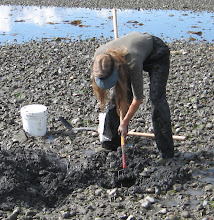Experts on breasts, babies, and trademark law — along with those interested in jugs and lawyer antics — all wondered why the California Milk Processor Board wanted Alaskan artist and breastfeeding advocate Barbara Holmes to stop using the slogan “got breastmilk?” on her onesies and infant t-shirts. They said Holmes’ slogan infringed on their “got milk?” trademark, but that seemed unlikely. Jill’s Comment brings things into better focus: On October 6, 2008, the Board’s lawyers, Knox Lemmon Anapolsky LLP, filed a trademark application with the PTO for a mark that:
“consists of the wording ‘got breastmilk?’ in all lower case letters in Phenix American font.”
![]() According to the TARR status report for the as-yet-unassigned claim with the Serial Number 77586468, the Board intends to use the “got breastmilk?” mark with the following products:
According to the TARR status report for the as-yet-unassigned claim with the Serial Number 77586468, the Board intends to use the “got breastmilk?” mark with the following products:
- baby blankets, children’s blankets and burp cloths
- breast pads and breast-nursing pads
- baby bottles, cups adapted for feeding babies and children, pacifiers, sippy cups, breast milk storage bottles, breast pumps and breast shields
- baby backpacks and baby carriers worn on the body
- clothing, namely, t-shirts, shirts, short-sleeved shirts, long-sleeved shirts, sweat shirts, infant bodysuits, pants, infant sleepers, hats, caps, cloth bibs, socks and infant onesies
For the full post and the latest comments, check out f/k/a...




